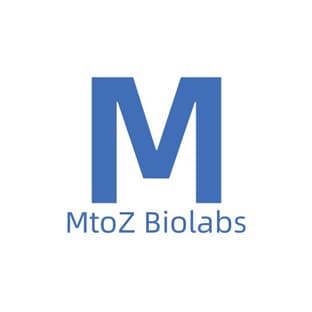Chromatography
Chromatography is a standard technique for analyzing molecules, such as proteins or DNA. In biological laboratories, researchers use various forms of liquid chromatography (LC) or gas chromatography (GC) to separate, detect and/or analyze biomolecules in pharmaceutical, cosmetic, food & drink, agricultural, industrial, and other materials.
In a simplified liquid chromatography setup, the biomolecule to be analyzed, called the analyte, is tagged with a fluorescent molecule and then temporarily bonded to plastic beads packed in a glass or metal column. Next, a liquid solvent, or eluent, is pumped through the column and around the beads, causing the stationary analyte molecules to begin binding to molecules in the moving eluent. As the liquid flows out the end of the column, an optical detector records the number of analyte molecules in it by counting the fluorescent tags as they pass by.
By plotting the concentration of analyte molecules flowing out of the column over time, and comparing the plot to a library of standards, researchers can determine molecular weight distributions, shapes, sizes, chemical reactivities and other characterizations of the biomolecules.
Many different methods and platform configurations are used in chromatography systems: Fast protein liquid chromatography (FPLC), reversed-phase chromatography (RPC), gel permeation chromatography (GPC), ion exchange chromatography, affinity chromatography, and high performance liquid chromatography (HPLC). These use spectrophotomers or mass spectrometers as detectors.
Chromatography accessories and equipment includes autosamplers, beads, liquid and gas solvents, fluorescent tags and dyes, and columns optimized for analyzing and separating specific chemical compounds.
Browse the product range below or simply use the Search Tool above to help find the best products.
Once you have found a product, complete a ‘Get a Quote’ form and you will get the best price!
Showing 24 of 444 results
Product A-Z
Latest promotions
Spend less time on DNA cleanup so you can do more science. The MSB Spin PCRapace is the fastest way to purify your DNA from PCR, restriction digestion, and...
New brilliant antibodies, and new lower prices!For flow cytometry reagents in general, \"bright is better.\" The violet-excitable BD Horizon™ BV421 and...
As an incentive to qualify our BSA, we are offering a 20% discount when you purchase your first 100g, 500g or 1000g of any grade of Bovine Serum Albumin....
It is not every day that you are given something for nothing. We are giving away additional spectrophotometer software.Cecil Instruments have enhanced the...
We're so sure that you'll prefer Cayman Assay kits over your present brand that we're willing to give you a free assay kit to prove it!
10% Discount on 2 Rabbit Polyclonal Antibody Service. With over 20 years experience, SDIX has developed into the premier US custom antibody producer,...
For the past decade scientists have extensively used ATS secondary toxin conjugates to make their own targeted toxins for in vitro use.The ability to combine...
Did your supplier increase the price of Fetal Bovine Serum? Did they substitute the US Origin with USDA? Well say no more! Innovative Research is still...
Bulk Cytokines with Custom Vialing.20 - 50% off cytokines, growth factors, chemokines and more...For a limited time Cell Sciences is offering substantial...
Jenway’s 73 series spectrophotometer range provides four models with a narrow spectral bandwidth of 5nm and an absorbance range of –0.3 to 2.5A,...
Are you planning to have a customised antibody made for your research?Since 2000, Everest has been producing a catalog containing thousands of affinity...
Top suppliers
United States Biological
230753 products
Carl Zeiss Microscopy
27 products
Promega Corporation
11 products
Panasonic Healthcare Company
5 products
Life Technologies
1 products
Nikon Instruments Europe
11 products
Olympus Europa Holding GmbH
3 products
Leica Microsystems, Inc.
10 products
GE Healthcare Life Sciences
2 products
Tecan Trading AG
19 products
Beckman Coulter, Inc.
1 products
AB SCIEX
3 products
BD (Becton, Dickinson and Company)
1 products
RANDOX TOXICOLOGY
5 products
Randox Food Diagnostics
6 products















